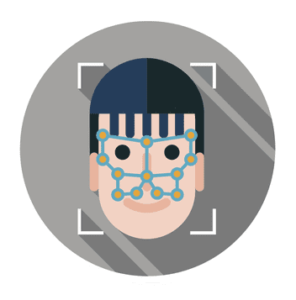Welcome to FindBiometrics’ digest of identity industry news. Here’s what you need to know about the world of digital identity and biometrics today:

Regulatory Developments
There is now majority support for a facial recognition ban in the European Parliament, according to a Politico report. Renew, a liberal, pro-European party, has joined the Greens and the Socialists & Democrats in supporting dramatic restrictions on the use of the technology, with Renew’s leading negotiator on the EU’s draft Artificial Intelligence Act asserting that he does not want exemptions for police use of facial recognition. He and his likeminded peers will be going up against interests from France and Germany that want the technology used for public security, as negotiations over the draft legislation continue.
The US General Services Administration will conduct a review of the issue of demographic bias in remote identity verification systems. The systems to be reviewed will include biometric systems such as those that rely on selfie-based facial recognition, as well as non-biometric identity proofing systems. The study will be based on NIST’s digital identity guidelines, and the GSA will work with private sector vendors to carry out its research. The planned project is open to public comment until November 21, 2022.
The chairman and ranking members of the Senate’s Homeland Security Committee have proposed legislation that will require the Cybersecurity and Infrastructure Security Agency to establish a risk framework for open-source software used by the government. Inspired by hearings after the discovery of the Log4j vulnerability at the end of last year, the proposed Securing Open Source Software Act would also require CISA to hire open-source software cybersecurity experts, and would require the Office of Management and Budget to publish guidance for government agencies concerning how to secure open-source software.
Executive Appointments
BioCatch has appointed Jonathan W. Daly as its new Chief Marketing Officer. Daly comes to the company from DTEX, a workforce management software provider, where he served as Chief Marketing Officer since June of 2020. He has also served in senior marketing positions with Onapsis, IntSights, and Carbon Black, among others. In announcing his appointment, BioCatch noted that it had more than doubled its annual recurring revenue since 2020, and explained that Daly will lead marketing for the company’s “next stage of growth”, adding that he will help the company to expand its positions “in key sectors including financial services, telecommunications and fintech.”
Corporate Strategy
Pangiam, a travel and security-focused computer vision and facial recognition specialist, is establishing a new headquarters in Fairfax County in Virginia, a $3.1 million investment that is expected to create over 200 jobs over the next three years. The company appears to have solid political backing for its move, with Governor Glenn Youngkin leading Pangiam’s announcement. “When innovative companies like Pangiam establish their headquarters in the Commonwealth, it strengthens our position as a leader in the technology sector and reinforces Northern Virginia’s reputation as an epicenter with the security industry,” he said.
Partnerships
Virdee, a provider of virtual guest reception software for hotels and other establishments, will now use CLEAR as its preferred means of identity verification. The companies’ collaborative partnership means that CLEAR’s 13 million members will be able to check into a hotel using a selfie photo where the Virdee platform is supported, and it marks CLEAR’s debut into the hospitality sector as it continues to expand beyond the air travel passenger screening space.
Cipher Skin, a biometric wearables startup, has entered into a partnership with Striveworks, an AI and Machine Learning specialist. The partnership will see biometric data collected through Cipher Skin’s “Biosleeve” solution fed into Striveworks’ Chariot platform, which will enable “personalized analytics to make sense of this data and drive informed care pathways,” explained Cipher Skin founder and CEO Phillip Bogdanovich. The news comes after Cipher’s announcement earlier this month that it had received new investment funding from Andreessen Horowitz, Tribe Capital, and Draper Capital.
Sensor Integrations
Fingerprint Cards’ Match-on-Chip solution for PCs has seen its first integration into a commercial product, the Dynabook Satellite C30-K laptop. The solution comprises a capacitive fingerprint sensor and biometric software, and was added to Microsoft’s Approved Vendor List earlier this year. In announcing the integration, the President of FPC’s Mobile, PC and Access China arm, Ted Hansson, said that four of the world’s top six PC OEMs already use FPC technology, but Dynabook’s new laptop is the first to take advantage of Match-on-Chip.
Mobile Biometrics
Samsung has launched a new ruggedized pair of devices for frontline and field workers that feature support for fingerprint and facial recognition. The Galaxy XCover6 Pro smartphone and the the Galaxy Tab Active4 Pro tablet are designed to weather extreme conditions, including temperature and altitude; and they can be converted into push-to-talk walkie talkies. Other features include NFC communications, barcode scanning, scratch-resistant Gorilla Glass, and the Knox Platform for data security.
Biometric Cards
Tag Systems has now received approval from Mastercard to produce biometric payment cards based on the Zwipe Pay platform for fingerprint-scanning cards. The development comes after Tag received a similar Letter of Approval from Visa in March. Zwipe CEO Robert Puskaric called the latest development “a key step in ramping up launches and volumes across Mastercard’s global payment card network.”
Industry Awards
Miami International Airport won a Future Travel Experience Airport Pioneer Award at the Future Travel Experience Global Conference & Exhibition, in recognition of its trailblazing work in implementing biometric boarding. To that end, the airport is leveraging SITA Smart Path, which uses facial recognition technology from NEC to automatically identify participating passengers at the boarding gate. The system will debut at two gates next month, and is expected to be completed across more than 130 gates in 2023.
–
September 22, 2022 – by Alex Perala
Want to get the identity news digest early? Become a member and get the digest sent straight to your inbox, before it’s published on FindBiometrics:








Follow Us